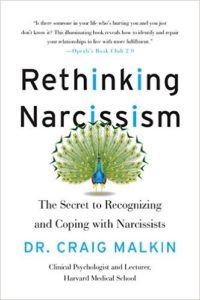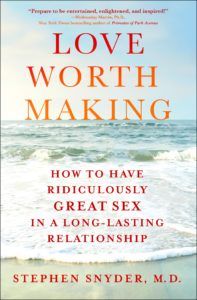 I am a book proposal nerd. I just love sitting out on my deck and digging in, occasionally looking up to see a monarch butterfly or two glide along the wind currents, or a hawk circle above.
I am a book proposal nerd. I just love sitting out on my deck and digging in, occasionally looking up to see a monarch butterfly or two glide along the wind currents, or a hawk circle above.
I love reading about book ideas, feeling the author’s passion for her or his subject and especially adding new creative ideas to help them make the book even more resonant for their readers and more attractive to publishers.
The biggest flaw I see in most proposals is that the author’s platform isn’t quite there yet. Often, I can suggest a few ideas specific to their book to help in growing author platform now.
Sometimes aspiring authors find the advice about growing author platform frustrating:
- “I’m writing the book to grow my platform. Why do I need a publisher once I already have a platform?”
- “I want to reach people now with my book. I don’t want to wait another year or two for growing author platform.”
- “I don’t know how to grow my platform.”
- “I tried and didn’t get anywhere.”
- “Who’s going to want to endorse my book and write a foreword, or help promote my book when I don’t even have a book written?”
These are all great questions. Chicken? Egg? Where to start?
The truth is, though, that whether you self publish or traditionally publish, your platform as an author is how you’ll reach readers. You NEED a platform to reach them (unless you have a very niche publisher who already reaches your exact target market, a quite unusual situation).
7 Benefits to Growing Author Platform Now!
Instead of bumming out. Rejoice in the benefits to growing author platform ahead of time. You’ll be able to:
1.  Write a Better Book: By engaging with your audience ahead of time, you’ll get to test out your ideas and improve upon them. Not only that, but working on your author platform can give you lots of extra practice writing. Says Christopher Littlefield, “After Lisa’s book proposal class, I took a break to focus on growing my author platform. I finally started my newsletter—just emailed my 20th issue!—and wrote several articles for other websites, like Thrive Global and LinkedIn. All that practice is improving my writing of the proposal and the book. And now people find me online, not just by knowing my website.
Write a Better Book: By engaging with your audience ahead of time, you’ll get to test out your ideas and improve upon them. Not only that, but working on your author platform can give you lots of extra practice writing. Says Christopher Littlefield, “After Lisa’s book proposal class, I took a break to focus on growing my author platform. I finally started my newsletter—just emailed my 20th issue!—and wrote several articles for other websites, like Thrive Global and LinkedIn. All that practice is improving my writing of the proposal and the book. And now people find me online, not just by knowing my website.
2. Get to Know What Your Readers Truly Want: You may think you know what you want, but whether you are speaking, blogging, teaching, podcasting, consulting or writing articles to grow your platform, you’ll learn from their comments and questions what most interests them. Dr. Craig Malkin was writing a relationship book, but it’s his post about Narcissism that went viral and resulted in the book that garnered a 6-figure book deal with HarperCollins—Rethinking Narcissism.
Get to Know What Your Readers Truly Want: You may think you know what you want, but whether you are speaking, blogging, teaching, podcasting, consulting or writing articles to grow your platform, you’ll learn from their comments and questions what most interests them. Dr. Craig Malkin was writing a relationship book, but it’s his post about Narcissism that went viral and resulted in the book that garnered a 6-figure book deal with HarperCollins—Rethinking Narcissism.
3. Make Money Now: I always encourage writers to have a business plan for how your platform building and book promotion will create income for you. Rather than pouring money into it, you want your platform building and book writing to be a self-sustaining project—one that creates abundance. Beth Suereth of Caregiving Pathways started working with me on her proposal, then shifted her primary focus to platform buliding early on in the process. After parlaying her platform building into multiple income streams, Beth quit her job to focus full time on the work she’s passionate about.
Beth says, “Platform building felt overwhelming at first, but it has paid off already. I learned how to network with my primary audience on Twitter, and I tweet about their efforts in addition to my own work. As a result, a well-known nonprofit organization connected with me — via Twitter — to offer me a consulting opportunity. I also now teach part of a course I took for the credential and networking it offers. I tweet about the course and the presentations I’ll be giving at the director’s conference, and she retweets many of my posts to her 30,000 followers! In addition, just yesterday I discovered my name on a blog post from earlier this year titled 50 Aging Influencers You May Not Have Heard Of.” In the background, Beth’s been working on her proposal here and there and just sent me a rough draft today.
And Christopher Littlefield, mentioned earlier, said that by finally creating a newsletter, as part of his platform building plan, four people have read the newsletter and reached out to him with business opportunities.
4. Give Yourself the Gift of Time: The sooner you start, the more time you have to build momentum. This means more potential readers (and book buyers) as well as less pressure to try to build all at once—which is more stressful and harder to pull off. I’ve seen several authors wait to start growing their platform until their proposal was done; they were disappointed about how long it took to grow their platform afterwards. Others who work on platform ahead of time and while writing the proposal often find themselves ready to pitch once they’ve written the proposal—a more satisfying position to be in.
After our initial work together, Dr. Stephen Snyder took my advice and spent several years working on his author platform before completing and submitting his book proposal. His diligence resulted in a 6-figure offer with St. Martin’s Press!
5.  Enjoy the Exponential Effects of a Supportive Network. As you help others along the way, they’ll help you. New York City sex and relationship therapist Stephen Snyder MD, author of the acclaimed new book Love Worth Making: How to Have Ridiculously Great Sex in a Long-Lasting Relationship shares how supporting a colleague of his led to even more substantial support from her down the road. While you don’t want to do all your good deeds expecting something in return, you will find that the good turns you do others will come back to you manyfold. In Dr. Snyder’s case, he attended a book talk given be one of his medical colleagues, Catherine Birndorf, who’d just co-written The Nine Rooms of Happiness. Since Dr. Snyder liked the book, he wrote an article about it on his website, and a few months later the author gave his name to a producer on the Today Show who invited him to do a segment. While in this case, his book was already out, I’ve seen similar situations with aspiring authors who were still working on their books.
Enjoy the Exponential Effects of a Supportive Network. As you help others along the way, they’ll help you. New York City sex and relationship therapist Stephen Snyder MD, author of the acclaimed new book Love Worth Making: How to Have Ridiculously Great Sex in a Long-Lasting Relationship shares how supporting a colleague of his led to even more substantial support from her down the road. While you don’t want to do all your good deeds expecting something in return, you will find that the good turns you do others will come back to you manyfold. In Dr. Snyder’s case, he attended a book talk given be one of his medical colleagues, Catherine Birndorf, who’d just co-written The Nine Rooms of Happiness. Since Dr. Snyder liked the book, he wrote an article about it on his website, and a few months later the author gave his name to a producer on the Today Show who invited him to do a segment. While in this case, his book was already out, I’ve seen similar situations with aspiring authors who were still working on their books.
6. Meet Your Idols, Paper Mentors and Other Cool People: As you work on platform building, you may finally meet a bestselling author you have admired from the distance or be introduced to new people who inspire you greatly. While teaching a workshop for the International Coach Federation, I met my coach, Tama Kieves, a great advocate for trusting my muse and honoring my creative instincts. In the spirit of platform building for my next book, I made it a goal to be interviewed on some podcasts. On one podcast, I met Laura Berman Fortgang, whose books I had read joyously when I first decided to become a writing coach. Unbeknownst to me, Laura was guest co-hosting the show and I got to tell her how much her books had meant to me!

7. Reach (and Help) More People Even Before Your Book Comes Out: I encouraged Dr. James Zender to pitch a blog to Psychology Today online and to apply for speaking opportunities as part of his platform building. He wrote me this week to share that over 300 people have signed up for his lecture on chronic pain from the mind body perspective, which takes place Friday at the Michigan Brain Injury Association fall conference. He has also been invited to speak at Harvard Medical School’s CME publishing course in 2019 and other venues. And his Psychology Today blog, The New Normal, reaches hundreds of thousands.
Just Added: “What if I Don’t Want to Write More?”
I just received a detailed email from a reader of this blog who said she wants to write her book, but not much more writing. I decided to add to the post so that everyone can benefit from my answer:
Question 1: She asked about using Facebook Groups or Pages.
My answer: Be careful with Facebook. The rules change all the time. You could put tons of energy and time into your group or page, only to find that no one will see it without advertising. And with a book, that investment in ads may not make sense financially. So, I would not make Facebook my primary media for reaching people — Ideally, you should lead people back to your website. In my recent interview with Rusty Shelton, he suggests quizzes. One of the great things about a quiz is that it is automatic. So, you can provide value to your participants without putting much time in once the quiz is developed.
If you are going to use Facebook, focus on groups (at least at the moment, until Facebook changes something again). With a page, you have to pay to get seen but when you post to a group, members will be notified automatically.
Another popular medium for reaching potential readers is podcasting. If you’re hesitant to write, you can try that.
Question 2: She also asked whether sending a newsletter out once a month is often enough.
My answer: Once a month is better than not at all, or every other month! So, do what you can, rather than strive for perfection.
However, if you are going to send a newsletter once a month, I recommend you use it to share a blog post, podcast or video and then just have a short introduction and link to its appearance on your website. Why? It will help you get found on search engines like Google.
If you send a newsletter, it’s “one and done,” but if you put it on your blog or website, it adds to the relevant content on your blog–something search engines like Google LOVE. So, you’ll increase the chances of people finding you when searching the internet for relevant terms.
Question 3: ‘If I start a Facebook Page, how do I protect my title?”
My answer: You can’t copyright a title. If you think someone may use it, just use a different name for your Facebook Group (preferred) or Page. Perhaps use your name. That way, if you write additional books, you can continue to use the same Facebook Group.
Now, Here’s My Question for You
Readers, have you found that working on your platform changed your book, helped your business, opened doors or was just plain exciting? Share your story about growing author platform as a comment below. Thanks!



Great post. As a former submissions reader and junior literary agent, your advice is much needed. Especially starting to build a platform before the book is written. Your information is poignant and powerful. Thank you.
Thanks, Cherrilyn. I’m sure readers of this blog would love to know what goes on in the mind of a submissions reader or literary agent when reading a proposal. I’d love to have your insights — what do you look for and what are some of the best things writers can do to boost their proposal or platform, in your experience?
I am so glad that I started platform-building from the get-go, when I was in BYBTL class. Having a structure and excuse to devote a page to my book and start writing about it, not only gave me a chance to explain the many interwoven aspects of the book, but gave me the space to think them through and come up with new sparks to add to the fire of ideas. Now the structure to expand is there to add to. Most importantly, it has become a resource and history of the book to share with my readers as well as agents. This is invaluable. From here the platform grows naturally and becomes a springboard into bigger markets.
Kathy, it’s been exciting to see you take some leaps of faith and reach out to the larger community to build your platform. Your work on platform offers a great example of how platform building is all about community!
Been working on my platform since working with Lisa in 2009. Daunting at first, I now send out a weekly newsletter, a monday quote that gets solid feedback, am releasing my second YA book early next year, working on my first self-help book, and have my first YA novel entering school systems for summer reading, moving towards required.
Lisa’s guidance and support has been solid through the years and I look forward to working with her on my next book.
Jill, Congratulations! How exciting that your first book is gaining such traction. Looking forward to haering more and reading your second book!
Thank you for all that you shared about creating a Platform. It does appear to be daunting but with your encouragement not insurmountable. I guess it is like the quote, “The journey of a thousand miles begins with a single step.”-Winston churchill. So how do you keep the Readers of your newsletter interested? Do you include discounts or incentives?
Hi Mariel,
My focus tends to be offering information that’s useful for them, like links to the blog post. I sometimes include links to free or paid programs offered by my colleagues (for whom I might be an affiliate) if they are teaching a skill that I know many of my people (aspiring and emerging authors) need. I occasionally include a discount or incentive but not that often. You certainly can if that’s the kind of thing your audience/community responds to. Ask them what they want if you don’t know!
Yes, yes, and yes again. This can never be said enough. The best time to start your platform building was ten years ago. The second best time is right now.